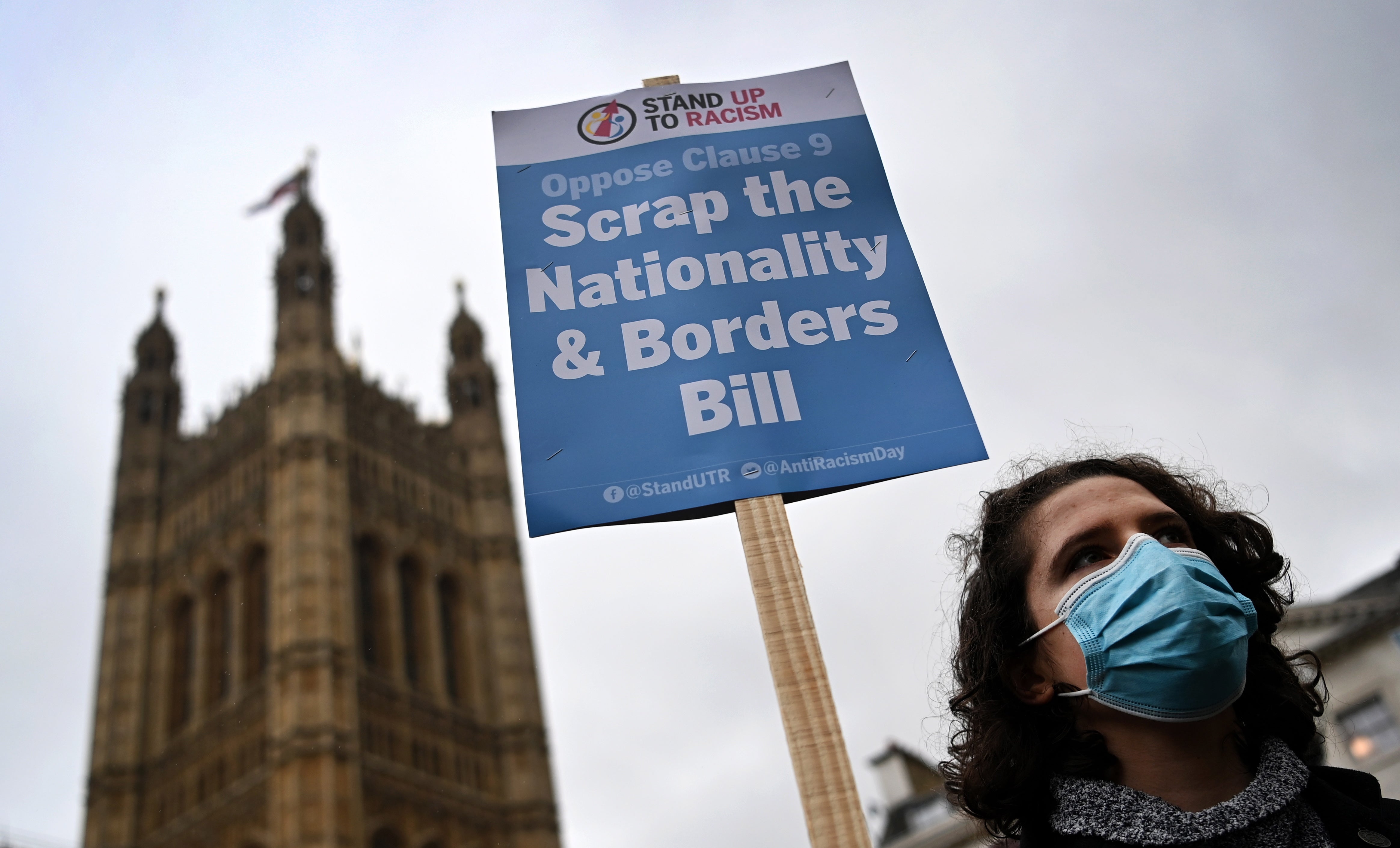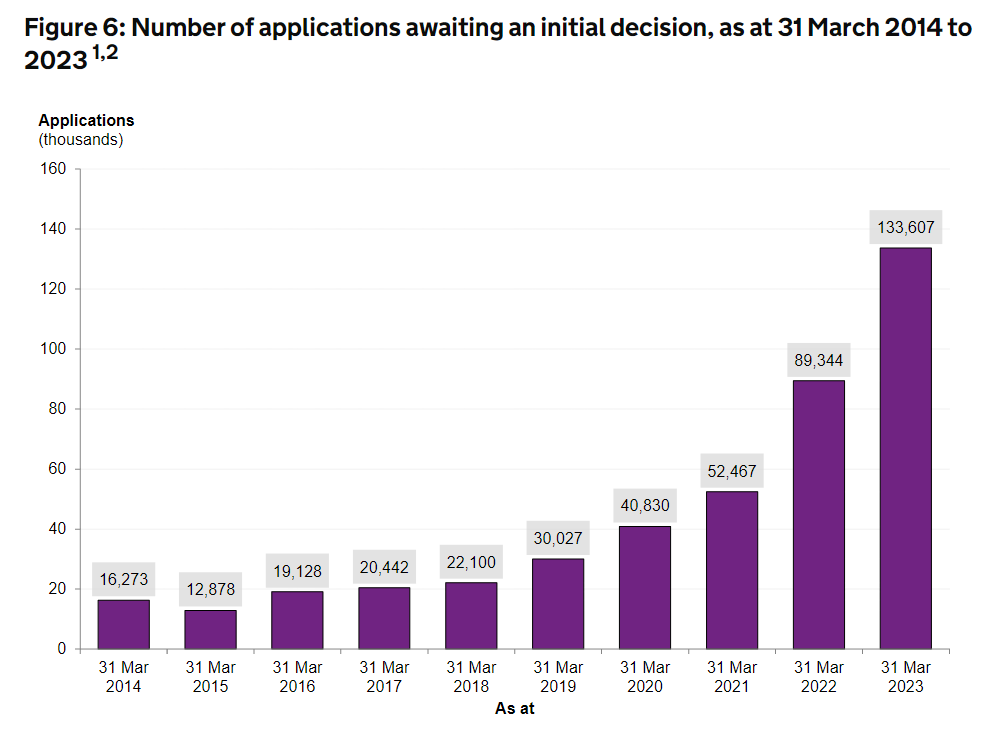Braverman scraps Patel’s flagship asylum rules after less than a year because hers are ‘stronger’
Rules quietly changed in ‘huge waste’ of taxpayers’ money as Sunak bids to cut asylum backlog

Suella Braverman is scrapping some of Priti Patel’s flagship asylum rules after less than a year in operation, as the government claims its new bill is “considerably stronger”.
In a written statement quietly published on the parliamentary website on Thursday afternoon, immigration minister Robert Jenrick said officials would stop affording refugees different rights on the basis of how they arrived in the UK.
He claimed the power was no longer needed because the new Illegal Migration Bill would be a “considerably stronger means” of discouraging small boat crossings.
But The Independent understands the policy had further slowed down asylum decisions, conflicting with Rishi Sunak’s pledge to clear part of the asylum backlog by the end of this year.
Legal action had also been launched by several affected asylum seekers, who argued the policy amounted to unlawful discrimination and a breach of the United Nations Refugee Convention.
One of the lawyers involved in the legal action told The Independent he expected all cases now to be settled, in a “huge waste of taxpayers’ money”.
“It really just seems like they’re coming up with these various ill-thought plans that are passed into law, and then they come up with something even more draconian,” he added.
“They don’t know it’s lawful, so they wait for legal challenges, see how that goes, and then pivot to something else. And in the meantime a load of vulnerable people are left in limbo.”
Yvette Cooper, Labour’s shadow home secretary, accused the government of “slipping out the announcement” in a way designed to avoid publicity.
“This is a damning indictment of the Conservatives' flagship immigration bill, and of their entire record on small boats, and shows ministers have no idea what they are doing,” she added.
The controversial laws were created by the Nationality and Borders Act and came into force on 28 June 2022.

They enabled small boat migrants and others who do not travel “directly from a country or territory where their life or freedom was threatened” to be afforded lesser rights on remaining in the UK and reuniting with family.
The move was stridently defended by Boris Johnson’s government as a way to deter soaring small boat crossings, with former immigration minister Tom Pursglove telling parliament it was a “fundamental point to the bill”.
But on Thursday, his successor Mr Jenrick claimed the new Illegal Migration Bill “goes further than ever before” by putting a legal duty on the home secretary to detain and deport small boat migrants, regardless of the merit of asylum and slavery claims.
“This approach represents a considerably stronger means of tackling the same issue that the differentiation policy sought to address - people making dangerous and unnecessary journeys through safe countries to claim asylum in the UK,” he added.
“We will therefore pause the differentiation policy in the next package of Immigration Rules changes in July 2023.”
Refugees who have so far been put in the lesser “group two” under the scrapped policy are being contacted to have their rights, including the length of permission to stay, UK settlement and eligibility for family reunion aligned with “group one” refugees.

Hannah Marwood, legal access manager at refugee charity Care4Calais, said the record number of small boat crossings since the policy came into force last June “show it was not a deterrent as the government claimed it would be”.
“Anti-refugee rhetoric is no substitute for effective policies, and replacing this with their latest bill won’t work either,” she added. “It’s time they offered the real solution - safe passage for refugees.”
Enver Solomon, chief executive of the Refugee Council, said the change was an admission that the controversial law had “failed to deliver, as was predicted”.
“Those fleeing conflict and persecution deserve to be treated with dignity and humanity, and should be given a fair hearing on UK soil, regardless of the route they have taken to find safety in our country,” he added. That won’t be achieved by introducing more punitive legislation that yet again won’t work.”
Tim Naor Hilton, chief executive of Refugee Action, said the “flip-flopping shows the total lack of coherent strategy guiding government policy, except to ramp up cruelty against people whenever its latest deterrence strategy fails”.
Mr Jenrick also announced that the government is expanding the scope of fast-track asylum questionnaires, which were originally announced in February for the citizens of five countries, and for applications made before June last year.
It is now being extended to claims up to 7 March, and to Sudanese asylum seekers as well as the previous nationalities of Afghanistan, Eritrea, Libya, Syria and Yemen.
Mr Jenrick acknowledged that the change was linked to the “prime minister’s commitment to clear the backlog of legacy asylum claims by the end of 2023”.



Join our commenting forum
Join thought-provoking conversations, follow other Independent readers and see their replies
Comments